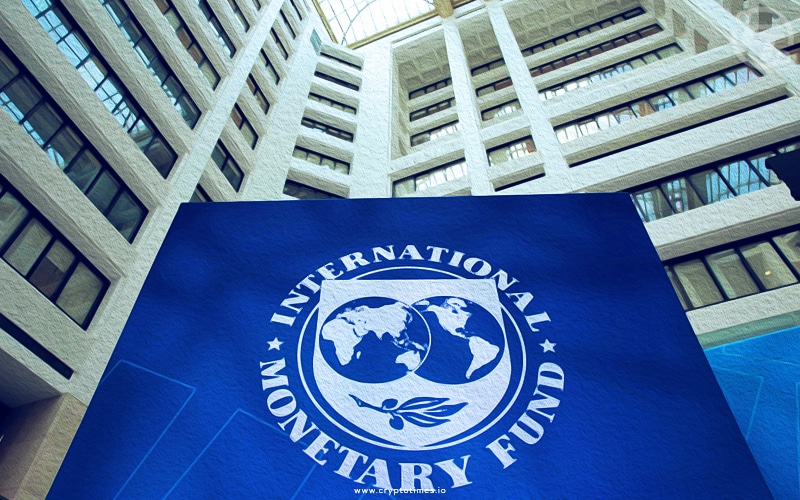In Brief:
- IMF urges governments to properly regulate the crypto sector as it possess financial stability risks
- It stated that a few stablecoins have insufficient reserves and provide inaccurate disclosure.
- The report claimed cryptoisation was threatening to replace domestic currency in underdeveloped nations.
The International Monetary Fund (IMF) has cautioned that the rising crypto sector poses systemic financial stability risks, and has urged governments for “comprehensive, consistent, and coordinated” worldwide regulation of the industry.
Tobias Adrian, director of the IMF’s Monetary and Capital Markets Department, and his deputy Dong He and Aditya Narain issued the statement.
While the $2.5 trillion market capitalization of cryptocurrency could imply that blockchain and other crypto-related inventions have actual worth, the three argue that it could also “reflect froth in an environment of stretched valuations.”
The post claimed that crypto service providers such as exchanges should be licensed or authorized.
It further stated that there should be a distinction made between services and products designed for investments and those intended for payments, with the former being supervised by the securities regulator and the latter by “the central bank or the payments supervisory body.”
Some stablecoins, according to the authors, have insufficient reserves and provide inaccurate disclosure.
Crypto assets, according to the IMF, will soon threaten systemic financial stability in some nations as policymakers try to manage risks.
It went on to say that crypto assets were fundamentally altering the financial system it was attempting to safeguard.
The report goes on to say that identifying, monitoring, and managing crypto-related risks continues to be a challenge for regulators and businesses.
It added that cryptoisation was threatening to replace domestic currency in underdeveloped economies, evading exchange limitations and capital account management regulations.
The IMF emphasized the issues posed by crypto’s “cross-sector and cross-border remit,” as well as different nations’ approaches to the asset class.
“Many crypto service providers operate across borders, making the task for supervision and enforcement more difficult,” the report noted.
The authors, unsurprisingly, propose that the IMF’s Financial Stability Board use its existing coordinating function to create a global framework for these laws.
“The objective should be to provide a comprehensive and coordinated approach to managing risks to financial stability and market conduct that can be consistently applied across jurisdictions, while minimizing the potential for regulatory arbitrage, or moving activity to jurisdictions with easier requirements, the author added.
The fund stated that it will collaborate closely with the FSB and other members of the international regulatory community to build a regulatory framework for bitcoin assets.
Crypto-asset service providers that provide vital functions should be licensed or authorized, as per the framework.
According to the IMF, licensing and authorisation requirements should be properly described, competent authorities should be clearly identified, and coordination mechanisms between them should be well established.
The IMF also suggests that banking, securities, insurance, and pension regulators establish capital and liquidity criteria, as well as limits on exposure to various forms of crypto assets, as well as investor suitability and risk assessments.
Earlier in October, the International Monetary Fund published its semi-annual “Global Financial Stability Report,” pointing out that the use of cryptocurrencies could potentially and adversely affect the global economy.






